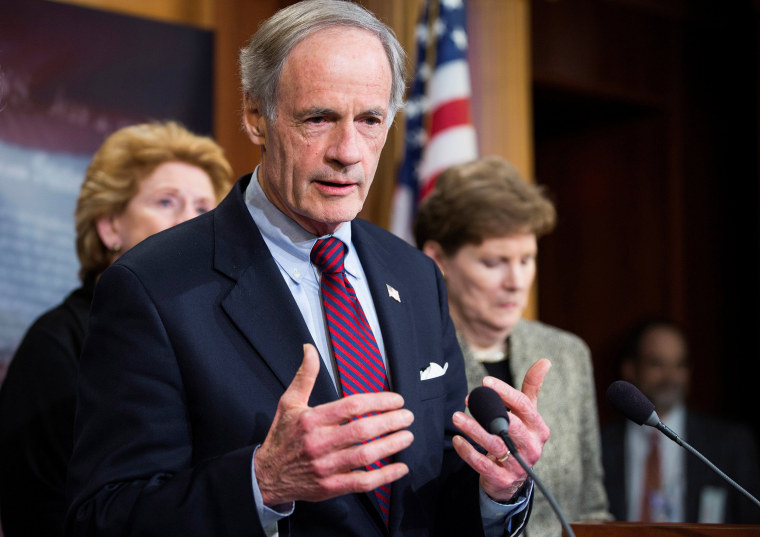In April 2017, a bipartisan group of 61 senators signed a joint, bipartisan statement in support of preserving the legislative filibuster for the indefinite future. Among them was Democratic Sen. Tom Carper of Delaware, a relative moderate who has supported collaborative policymaking.
As Republican abuses became more common, many Democratic senators — including several who signed onto the 2017 letter — started expressing greater interest in institutional reforms. Carper, however, was not one of them.
It's against this backdrop that the Delaware Democrat wrote a new op-ed for the News Journal in Wilmington, arguing that it's absolutely necessary for Congress to pass the Freedom to Vote Act and the John Lewis Voting Rights Advancement Act in order to "protect the right to vote and uphold the sanctity of our electoral process." In recent weeks, both compromise proposals were derailed by Republican filibusters.
And so, Carper is prepared to make a change. From his piece:
I'm an optimist by nature, so I want to hold out hope that a compromise can be reached. But I cannot look the other way if total obstruction continues. I do not come to this decision lightly, but it has become clear to me that if the filibuster is standing in the way of protecting our democracy then the filibuster isn't working for our democracy. Earlier this year, my friend Sen. Angus King, an Independent from Maine, wrote that "if forced to choose between a Senate rule and democracy itself, I know where I will come down." And so do I.
The Delaware Democrat, in his 20th year in the Senate, concluded, "No barrier — not even the filibuster — should stand in the way of our sacred obligation to protect our democracy."
As we discussed earlier, Carper isn't alone in arriving at this point. In addition to Angus King, Virginia's Mark Warner, another moderate Senate Democrat, publicly endorsed a carve-out to the status quo, saying Americans' voting rights are so fundamentally important to our system of government, this is "the only area" in which he'd support an exception to the chamber's existing filibuster rules.
Senate Majority Leader Chuck Schumer, after years of cautious neutrality on the issue, also appears ready to do whatever it takes to protect Americans' voting rights, even if that means creating an exception to the chamber's filibuster rules.
Obviously, if conservative and centrist Democrats like West Virginia's Joe Manchin and Arizona's Kyrsten Sinema continue to prioritize the filibuster over democracy, these compromise proposals will fail, and the Republican Party's voter-suppression measures will go unanswered.
But that's what makes Carper's op-ed so notable. If the Democratic conference's most progressive members were to make the case to Manchin and Sinema that they should do the right thing on voting rights, it probably wouldn't have much of an effect — because those aren't the voices that persuade them.
But no one has ever accused Carper of being a far-left ideologue, hellbent on radical changes. On the contrary, he's earned a reputation as a cautious lawmaker.
If and when he makes the case to his colleagues that this is the sensible and responsible way forward, it might help make a difference.

